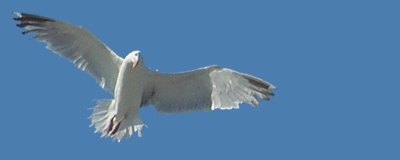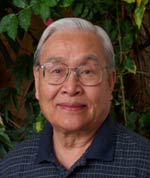|
|
 |
 |

夏菁
Hsia Ching
 
夏菁,是盛志澄的笔名,1925年生于浙江嘉兴.美国科罗拉多州立大学硕士,曾任联合国专家及科罗拉多教授等职。夏菁是台湾 “蓝星诗社” 创始人之一。自1954年 出版第一本诗集起,已有九种,包括近年出版的《雪岭》(2003)和《夏菁短诗选》(2004)等。
Hsia Ching, the pen name of Ted (Tse) C. Sheng, was born in Zhejiang, China in 1925. He received his M.S. degree from the Colorado State University (1966) and has worked with the United Nations and taught at the Colorado State University. Hsia Ching was one of the founders of the Blue Stars Poetry Society in Taiwan in early Fifties. Since his first collection of poems published in 1954, he has produced a total of nine volumes of poems including the recent two: A Snow-capped Peak (2003) and Selected Poems of Hsia Ching (2004).
|

|

译者
Translator
夏菁
Hsia Ching
|
 |
六千年的拥抱
── 一对意大利发掘的骸骨 |
 |
The Eternal Embrace
── A pair of skeletons discovered at Southern Italy
|
时间在他們的拥抱里
已消失了意义
六千年,只是昨天
当初是这般睡姿
现在还是
白骨相拥
还有什么、在这个世间
更使人感动?
他们拥抱在传说以前
历史之前,也许
那时还没有文字
没有适当的语言
就是这样一个拥姿
使人黯然拭泪
使人低头沉思
他们的肢体语言
胜过、将爱说上一千遍
一首无言的杰作
不需要任何解说
在这种至死不渝之前
莎士比亚变为饶舌
我的更加腼腆
|
|
Since they embraced together
Time has lost its meaning.
Six thousand years ago, like yesterday,
They poised with the same position
Then and now.
Embraced with bare skeletons;
Has anything in this world
Which is more touching?
They embraced before any legend
Before any history, and perhaps, then
No written signs were available
Neither was proper speech.
This un-tampered embrace
Makes us somberly shed tears,
And sink into our deep thinking.
Their body language is more expressive
Than bidding Love for a thousand times.
A masterpiece of wordless
Does not need any interpretation.
In front of this scene of eternal love
Shakespeare becomes garrulous
And mine is bashfully worthless.
|
 |
美 |
 |
The Beauty of Nature |
我常想捕捉一种天然的美
鸢飞鱼跃或涧水淙淙
用文字捉到后总觉得乏味
像流萤纳入了瓶中
|
|
I always want to catch the beauty of nature:
Eagles' soaring, fish's surfing, or creeks' singing;
When it is caught by words I find no pleasure,
But, like fireflies captured in a bottle, disappointing.
|
|
|







